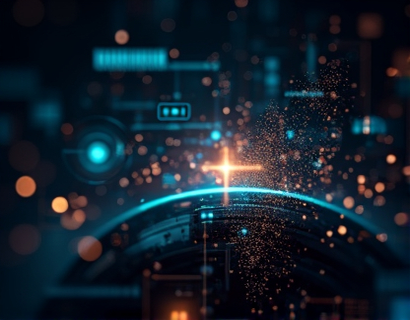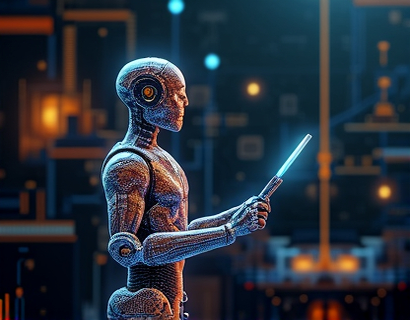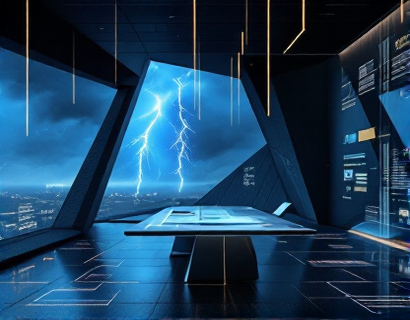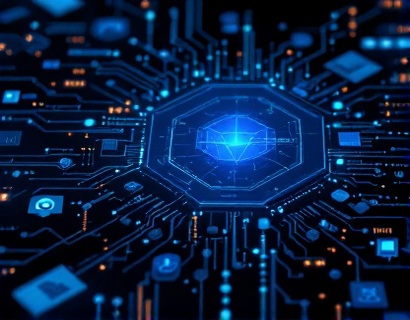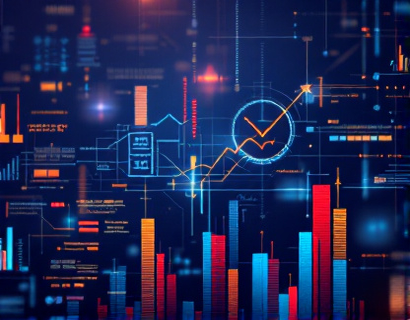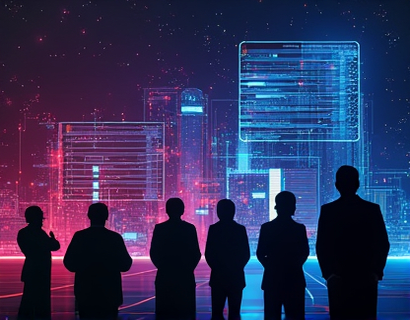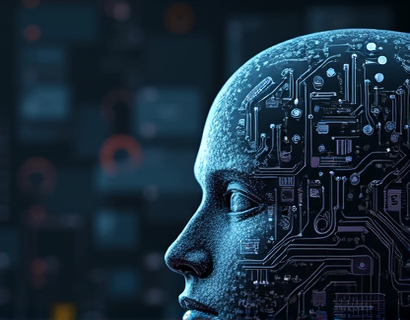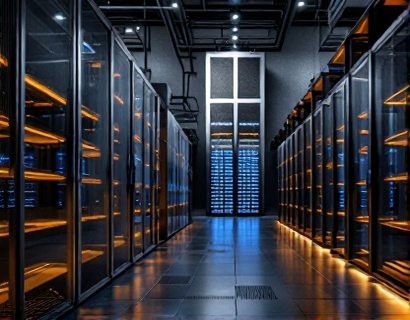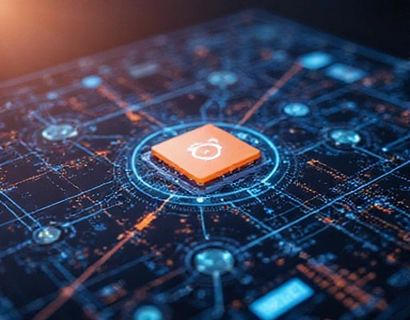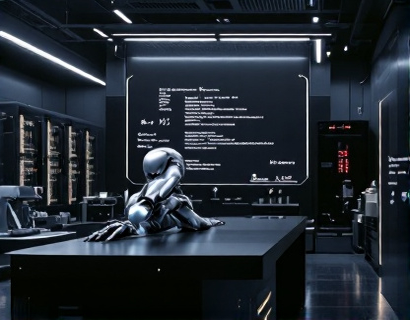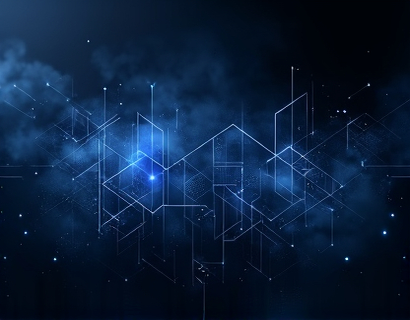Decentralized DAOs: Empowering Web3 Governance with Community Innovation and Transparency
In the rapidly evolving landscape of Web3, decentralized autonomous organizations (DAOs) stand as a pivotal force, redefining governance and community engagement. These community-driven entities leverage blockchain technology to create transparent, scalable, and innovative frameworks for managing digital protocols. This article delves into the transformative impact of DAOs, exploring how they empower communities and drive the future of decentralized technology.
Understanding DAOs
Decentralized autonomous organizations are digital entities that operate through smart contracts on a blockchain. These smart contracts encode the rules and decision-making processes of the organization, ensuring that all actions are transparent and immutable. Unlike traditional organizations, DAOs do not rely on a central authority or hierarchical structure. Instead, they are governed by their members, who participate in proposing, voting on, and executing decisions.
The foundation of a DAO lies in its decentralized nature, which promotes equality and inclusivity. Every member has a say in the direction of the organization, regardless of their contribution level. This democratization of governance is a significant departure from conventional models, where power is concentrated in the hands of a few.
Community Empowerment
One of the most profound impacts of DAOs is the empowerment of communities. By removing barriers to participation, DAOs enable individuals from diverse backgrounds to contribute to the governance and development of digital protocols. This inclusivity fosters a sense of ownership and responsibility among members, driving innovation and collaboration.
Community empowerment in DAOs is achieved through several mechanisms. First, the use of on-chain voting systems allows members to propose and vote on changes to the organization's rules and strategies. This process ensures that decisions reflect the collective will of the community, rather than the interests of a select few. Second, DAOs often implement token-based systems, where members hold tokens that grant voting rights. This tokenization not only incentivizes participation but also aligns the interests of members with the success of the organization.
Moreover, DAOs facilitate the creation of decentralized applications (dApps) and projects that benefit the entire community. By pooling resources and expertise, members can develop solutions that address common challenges and opportunities in the Web3 ecosystem. This collaborative approach accelerates innovation and ensures that the benefits of technological advancements are widely shared.
Transparency in Governance
Transparency is a cornerstone of DAO governance, and it is achieved through the inherent properties of blockchain technology. All transactions, proposals, and votes within a DAO are recorded on the blockchain, making them accessible to anyone with an internet connection. This level of transparency builds trust among members and stakeholders, as there is no room for hidden agendas or corrupt practices.
The immutability of blockchain ensures that once a decision is made, it cannot be altered or deleted. This permanence provides a clear and verifiable history of the organization's actions, further enhancing accountability. Members can track the progress of proposals, view the voting results, and understand the rationale behind decisions. This openness fosters a culture of trust and cooperation, essential for the success of any community-driven endeavor.
Transparency also extends to financial management. DAOs often use decentralized finance (DeFi) protocols to manage funds, ensuring that all financial transactions are transparent and auditable. This reduces the risk of mismanagement and fraud, as every transaction is recorded and verified by the network.
Scalability and Innovation
Scalability is a critical factor for the growth and sustainability of DAOs. As the Web3 ecosystem expands, DAOs must be able to adapt and scale to meet the evolving needs of their communities. Blockchain technology, particularly layer 2 solutions and interoperability protocols, plays a vital role in enhancing the scalability of DAOs.
Layer 2 solutions, such as state channels and sidechains, offload transactions from the main blockchain, reducing congestion and lowering transaction fees. This improves the efficiency of DAO operations, allowing for faster and more cost-effective decision-making. Interoperability protocols enable seamless interaction between different blockchain networks, facilitating the integration of diverse dApps and services within a DAO.
Innovation is another key driver for DAOs. The decentralized nature of these organizations encourages experimentation and the adoption of new technologies. Members can propose and implement cutting-edge solutions without the bureaucratic hurdles associated with traditional governance models. This agility allows DAOs to stay at the forefront of technological advancements, continuously improving and expanding their capabilities.
Case Studies and Real-World Applications
Several DAOs have successfully demonstrated the potential of community-driven governance in Web3. One notable example is the MakerDAO, a decentralized finance protocol that allows users to create and manage stablecoins called DAI. MakerDAO operates through a DAO, where token holders propose and vote on changes to the protocol's parameters, such as collateral requirements and interest rates. This decentralized approach has enabled MakerDAO to become one of the most robust and widely used stablecoin protocols.
Another example is the Aragon DAO, a platform for building and governing decentralized organizations. Aragon provides tools for creating custom DAOs, managing tokens, and facilitating on-chain voting. By lowering the barriers to entry for DAO creation, Aragon has empowered numerous communities to establish their own governance structures, fostering a diverse and vibrant ecosystem of decentralized projects.
These case studies illustrate the transformative power of DAOs in various applications, from finance to community management. They demonstrate that when communities come together to govern digital protocols, the results can be highly innovative and effective.
Challenges and Considerations
While DAOs offer numerous benefits, they also face challenges that must be addressed to ensure their success. One significant challenge is the technical complexity associated with blockchain and smart contracts. Many potential members may lack the knowledge and resources to participate fully in DAO governance. To overcome this, educational initiatives and user-friendly interfaces are essential to make DAOs accessible to a broader audience.
Another challenge is the governance paradox, where the decentralized decision-making process can lead to inefficiencies and slow responses to urgent issues. To mitigate this, DAOs can implement hybrid governance models that combine decentralized and centralized elements, allowing for both community input and swift decision-making when necessary.
Legal and regulatory uncertainties also pose a challenge for DAOs. As the legal framework for decentralized organizations is still evolving, DAOs must navigate a complex and often unclear regulatory landscape. Engaging with legal experts and advocating for clear regulations can help DAOs operate within a supportive and stable environment.
The Future of DAOs
The future of DAOs is bright, with ongoing developments in blockchain technology and increasing adoption by communities and organizations. As the ecosystem matures, we can expect to see more sophisticated governance models, enhanced scalability, and greater interoperability between DAOs and other decentralized systems.
The role of DAOs in shaping the Web3 landscape cannot be overstated. By empowering communities, ensuring transparency, and fostering innovation, DAOs are paving the way for a more decentralized and equitable digital future. As more individuals and organizations recognize the potential of DAOs, the movement towards a decentralized Web3 will gain momentum, leading to a more interconnected and future-proof digital landscape.
Joining the DAO movement is not just about participating in governance; it's about being part of a revolutionary force that is redefining the rules of the digital world. Whether you are a tech enthusiast, a community leader, or an innovator, there is a place for you in the DAO ecosystem. Together, we can build a Web3 that is truly of the people, by the people, and for the people.




